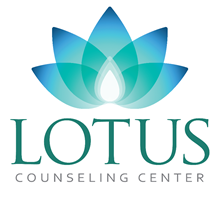
International Friendship Day: Maintaining Healthy Relationships
International Friendship Day:
Maintaining Healthy Friendships
Written By: CRISTINA BEHRENS-SOULAVY, RMHC-I
At Lotus Counseling Center we understand the importance and effects of maintaining healthy relationships.
When I was asked to write about International Friendship Day, the first thing that crossed my mind was to reach out to my childhood friends and ask them what friendship meant to them. The most common response was that friends are much more than family members. We can’t choose our family, but we can indeed choose our friends. Healthy relationships are sealed with a strong, invisible bond that keeps you close to a person regardless of the physical distance. Good friends give honest advice when needed and rejoice and celebrate our achievements, as they make our emotional burdens more bearable. Being part of a group of friends increases our sense of belonging, providing us emotional support and safety, as we cope with life setbacks and painful experiences. Quality time with friends reduces stress and increases overall happiness, impacting our physical and emotional health in many ways. But as we grow older life can get in our way. Oftentimes adult responsibilities can easily take over our lives, inadvertently neglecting our social circle as a consequence. For example, what happens when we are forced to move to other places and leave old friends behind?
Although exciting, I think most of us agree that moving to a new city can be extremely stressful. Picturing oneself at a new empty space, surrounded by boxes, dealing with change of address maybe in a different language, disconnecting and reconnecting services as we comply with family and professional responsibilities can be an overwhelming and emotionally draining process. Even if we patiently assume this challenge as a natural transition, it can still be extremely disruptive, especially if we have to face all this by ourselves. Developing a healthy social network in your new city could smooth down your process, facilitating your adaptation to a new life and help in maintaining healthy friendships.
As a start you could reach out to old acquaintances or family members. They could help you connect with people in your new city that would serve as a guide to clarify doubts and give you tips about your area. It is imperative that you face this process with a flexible and open mindset, accepting spontaneous invitations whenever they are extended to you. Cultivate your hobbies by joining the community center, gym or sport league in your area. The responsible use of social media platforms is also a good idea. Just make sure you assist the group events and not just hide yourself behind the screen! Use some time off to walk around your neighborhood and talk to neighbors. Extend invitations to colleagues, coworkers, or potential new friends to grab something to eat, go to the movies, or visit a cultural event. More is not necessarily better in this case… favor quality over quantity! Just a few real good friends can go a long way. Be persistent and do not give up! It is clear that nurturing old friendships as well as making new ones takes a lot of time and effort, nevertheless this will undoubtedly be the best investment you could make for your mental health and overall happiness!
If you’re interested in therapy, what constitutes as/and maintaining healthy friendships/relationships, or have issues with building intimacy, relationship issues or require counseling for conflict resolution, we are here to help. Reach out and schedule an assessment or meet our team of clinical psychologists, clinical social workers and therapists. We look forward to hearing from you. Read more on our blog!









